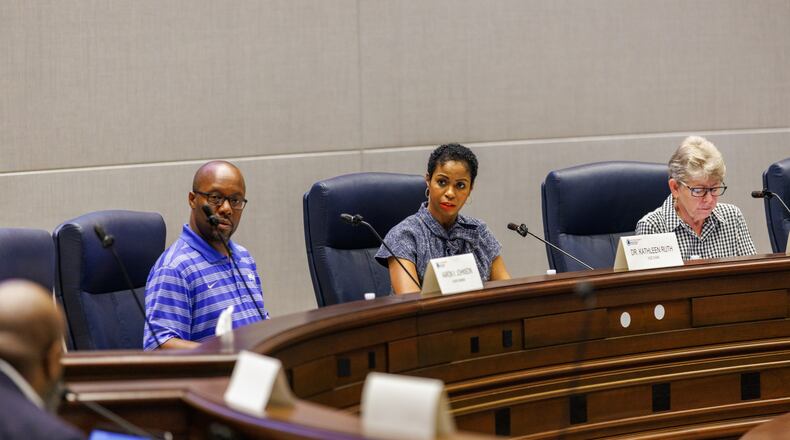Election certification is a milestone, a vote by county election boards across Georgia to finalize results.
Their vote is required by Georgia law, but it’s more than a symbolic act.
Certification is a point in time, one week after Election Day, when county election boards approve results to the best of their knowledge, even if there are errors or imperfections.
Only after certification can losing candidates contest their defeats in court. The same goes for recounts — certification comes first.
If results change, it’s not unusual for county election boards to recertify an election with updated numbers.
Republican election board members have increasingly opposed certifying elections since then-President Donald Trump claimed he lost the 2020 election because of fraud, raising concerns from voting rights groups and Democrats that Republicans could vote to reject election results if Trump loses again this year.
Georgia law makes it clear that election certification is mandatory. Statutes repeatedly use the word “shall,” which means certification is required of election boards.
The secretary of state, Brad Raffensperger, is also required to certify the combined results from Georgia’s 159 counties.
Republican election board members who have voted against certifying support a lawsuit arguing that they should have “discretion” — meaning that they want to be able to vote “no” — when they see miscounts, errors, process inefficiencies or a lack of ballot security documentation.
They object to a long history of court decisions that say certification is merely a “ministerial” duty, arguing that they aren’t just unthinking robots for the government.
They say their certification vote has to mean something.
And it does. It means election boards computed vote totals, acknowledged who won and who lost, recorded the number of people who voted in each precinct, and investigated discrepancies and errors.
Credit: File
Credit: File
Certification is the next step.
If election boards find problems, the law says they still have to certify:
“If any error or fraud is discovered, the superintendent shall compute and certify the votes justly, regardless of any fraudulent or erroneous returns … and shall report the facts to the appropriate district attorney for action,” state statute says.
About the Author
Keep Reading
The Latest
Featured




